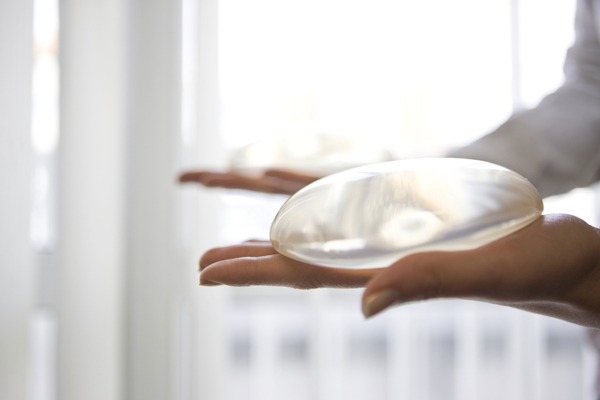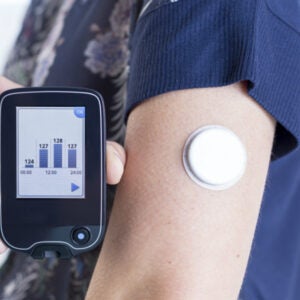
Poor quality medical devices are highly dangerous to patient safety – and as the problem has worsened during the last decade, it’s resulted in more frequent recalls in the United States.
The Food and Drug Administration (FDA) has reported a total of 29 medical device recalls so far this year, of which seven were reported in July.
A recent Kaiser Health News investigation revealed that the FDA granted device makers numerous “exemptions” from the standard rules of publicly reporting harm related to devices through the Alternative Summary Reporting (ASR).
This was done rather than filing an individual report on each issue to the publicly-available Manufacturer and User Facility Device Experience (MAUDE) database, meaning it would not visible to doctors, medical researchers or the public.
But this year, the FDA has ended the ASR programme and is now making more than 600,000 reports received under ASR exemptions from 1999 to 2019 available to the public.
FDA director Dr Jeffrey Shuren said: “We have formally ended the ASR programme and issued revocation letters to the remaining 13 manufacturers with ASR exemptions, which covered three kinds of devices – dental implants, implantable cardiac defibrillators and pacemaker electrodes.
“While ASR reports were submitted to the FDA for review, in an effort to increase transparency we modified the conditions of the ASR programme in 2017 to require manufacturers to also submit a “companion” medical device report so that some information collected through it would be visible publicly in our MAUDE database.”
How the FDA will change how it manages faulty medical devices for user safety
According to the FDA, the ASR programme, which ran from 1997 until June this year, was designed to reduce paperwork and save time.
The decision to end it follows a recent Kaiser Health News (KHN) investigation published in March, titled Hidden FDA Reports Detail Harm Caused by Scores of Medical Devices.
A recall is an action taken to address a problem with a medical device that violates FDA law.
It can occur when a medical device is defective, when it could be a risk to health, or when it is both defective and a risk to health.
The previously confidential database detailed more than six million reported problems filed since 2016 with medical devices, such as implantable cardiac defibrillators and pacemakers, of which doctors were also unaware.
Despite the move to increase transparency by the submission of publicly-visible “companion” medical device reports, FDA data provided to KHN shows that during the first nine months of 2018 the agency continued to accept more than 190,000 injury reports and 45,000 malfunction reports under exemption through the alternative reporting programme.
Serious incidents from faulty medical devices
Both patients and providers have continued to show interest in the safety of medical devices – even when the FDA decides not to recall them.
Outside of fatalities, some of the most serious events reported were related to breast implant injuries, caused by leaks, deflation or migration.
More than half a million unique reports related to breast implants have been made, with 6,600 in 2019 alone, and the most common issue being ruptured implants.
This was the case earlier this year with women who had implants to either enlarge their breasts cosmetically or rebuild them after a mastectomy.
Reports from thousands of women who suffered debilitating joint pain and fatigue due to breast implants say they were initially informed that they were safe, and that the FDA was not expected to propose any new restrictions or warnings.

The FDA says on its website that there is no “apparent association” between breast implants and chronic, debilitating diseases, such as connective tissue disease.
In March, however, the FDA appeared have shifted in its thinking.
The agency said it would begin studying whether certain materials used in breast implants, metal hips and other devices can trigger health problems in patients.
FDA commissioner Dr Scott Gottlieb said: “We’re advancing other new steps to modernise our efforts and to improve how we provide information to consumers.
“Our experts are evaluating how new technologies might be used to notify consumers if they’ve purchased a product that is later recalled.
“Our labs are currently testing cutting-edge technology that can screen for multiple allergens simultaneously, and even technology that shrinks the genetic testing of pathogens from machines that were once the size of an entire room to a device that’s smaller than many smart phones.
“We’ll also be working to improve product traceability by tapping into modern approaches, such as blockchain technology, to further advance our mission of protecting public health.”
Some blood glucose meters for patients with diabetes were found to have the most complaints of any type of device, with 2.4 million reports made over the last 20 years.
Although given that almost 10% of the US population has diabetes, the high demand for blood glucose monitors will inevitably lead to a notably high number of failure reports for those devices due to their prevalence.
What’s next for the safety of medical devices?
In 2017, the FDA also implemented a Voluntary Malfunction Summary Reporting (VMSR) programme, which enables it to efficiently detect potential safety signals and free up resources to better focus on addressing the highest risks, such as deaths and serious injuries, associated with medical devices.
The regulator will use new funding to make the MAUDE database more user-friendly over the next few years, making medical device reporting data easier to find.
It also plans to begin designing active surveillance capabilities for its National Evaluation System for Health Technology, which has been in development since 2012 to systematically use real-world data to identify and address safety concerns around devices on the market.
Dr Shuren said: “Adverse events that result in a death or serious injury cannot be reported under the VMSR Program.
“Such events must still be reported to FDA within 30 days – or within five days if a problem with a device is particularly egregious.
“Active medical device surveillance will better protect patients by continuously using analytical software algorithms to evaluate large data sets on device performance, and patient safety associated with device use in routine clinical practice.”






